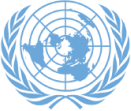(25 September 2019, New York)
Let me begin by expressing my sincere appreciation to Minister Sergey V. Lavrov for inviting me to speak at this Ministerial debate. I also thank Secretary-General Antonio Guterres and other speakers for their remarks.
Cooperation of the United Nations with regional and sub-regional organizations is essential in effectively addressing the complex challenges facing the world today, especially those related to terrorism, violent extremism and transnational organized crimes.
The UN Global Counter-Terrorism Strategy and its reviews have been instrumental in providing the international community with a solid and updated guidance to address terrorism along its four mutually reinforcing pillars. Furthermore, the establishment of the UN Counter-Terrorism Office and the subsequent signing of the Global Counter-Terrorism Coordination Compact among the 36 UN entities in addition to the Interpol and the World Customs Organization laid solid groundwork for the whole-of-UN approach to tackling the threats of terrorism. We expect that these initiatives will further strengthen the UN cooperation with the relevant regional organizations and better target its assistance to member States in enhancing their anti-terrorism and anti-organized crime capacity.
Mongolia stands strongly committed to our common struggle against the scourge of terrorism becoming a party to all the UN conventions against terrorism and organized crime applicable to it, and is taking all the necessary measures for their implementation. Moreover, as an observer of the SCO, we concluded the Protocol between the Anti-Terrorist Coordination Council of Mongolia and the Regional Anti-Terrorist Structure of the SCO in 2014, actively engaging in various activities organized under the auspices of the structure.
In addition to our global and regional efforts to counter terrorism we have been cooperating also with the countries in the region. Thus, Mongolia signed the agreements on cooperation in combating terrorism with the Kyrgyz Republic and the Russian Federation, as well as the agreement on cooperation in combating crimes with the People’s Republic of China. These agreements provide legal basis for information sharing, exchange of best practices and conducting other preventive measures among the relevant organizations.
As suggested by the Concept Note distributed for this meeting I would like to share some thoughts concerning possible modalities and approaches to enhance our cooperation to counter the global terrorist threat. They include:
First, more focused targeting of capacity-building assistance – one of the pillars of the Global Counter-Terrorism Strategy.
I wish to recall that in my statement back in 2007 at the joint Mongolia-OSCE conference on countering terrorism held in Mongolia I proposed “Individual Action Plan of Small and Medium Developing Countries on Making Their Territories Immune from Terrorism”. The proposal was made on the basis of expectation that after the universal tightening of the security regimes in most of the developed countries following the 9/11 terrorist attack, terrorist cells would be pushed to settle in weaker economies, where the rules and regulations tend to be loose, weak, and often corrupt.
After more than a decade we can see that this anticipation has become a reality. Today, we are witnessing the trend that terrorist cells found their refuge and strengthened and spread their hold in some weaker economies to the extent that they are capable of not only occasional strikes but also to wage wars. On the other hand, the situation is further exacerbated by the phenomenon of home-grown terrorism in developed countries.
Hence, the developed countries and international organizations ought to provide technical assistance to vulnerable countries in consolidating their anti-terrorism and anti-organized crime capacities. As a result of such technical assistance and cooperation we should have, ideally, a uniform anti-terrorism capacity throughout the global legal jurisdictions. Once the capacity of all countries is brought to the required uniform level, no space would be left for terrorists and criminals to nest, and, then, no government would be too weak to fight terrorism.
Second, the need to effectively address the growing nexus between terrorism and the transnational organized crimes, including trafficking of drugs, weapons and persons. Profits from such illicit trafficking are largely pulled for financing terrorism.
We should also be aware of an emerging tendency to target and drag nationals of smaller developing countries into drug-trafficking and other related crimes. In order to prevent them from being seduced and lured into such illicit activities preventive measures through international cooperation ought to be put in place.
Third, engagement of youth is critical in preventing and countering violent extremism and terrorism.
Rapid advances in cyberspace and digital communication technologies bring about not only considerable benefits to societies but also risks associated with its abuse by terrorist actors. With a view to utilizing better social media in promoting a culture of peace, non-violence and tolerance, and mutual understanding among the youth around the world my Ministry in collaboration with the Facebook organized last April a Peacebook Forum in Ulaanbaatar, Mongolia.
At the High-level Inter-Regional Conference on “Whole-of-Society Approach to Preventing and Countering Violent Extremism and Radicalization that Lead to Terrorism” organized by the Government of Mongolia in collaboration with the Organization on Security and Cooperation in Europe and the UN Counter-Terrorism Office in June this year in Ulaanbaatar we also had a separate discussion on inter- and- intra-religious dialogue within the religious freedom discourse being supported and promoted by the US Administration.
Another initiative of ours related to employing advances in technology for peace is the creation of a completely digital Peacebook journal of international relations which would run and popularize research works on global issues by scholars and peacebuilders from around the world. The benefits for the youth in creating such a journal would include promotion of a culture of peace, tolerance, intercultural and interreligious dialogue, enhancement of the voice and participation of the youth in decision-making for the prevention and resolution of conflicts, including those to counter violent extremism and terrorism.
Mongolia also supports other important initiatives aimed at eliminating terrorist and violent extremist content online, including the Global Counterterrorism Forum, Tech against Terrorism as well as The Christchurch Call to Action.
In concluding let me reiterate our firm belief that the very goal of preventing and countering terrorism cannot be achieved by a single country. Hence, our joint efforts in implementing the UN Global Counter-Terrorism Strategy will be more productive if supported by an effective collaboration with the relevant regional and sub-regional organizations. In this context I see this meeting as an excellent opportunity to foster the multi-stakeholder cooperation in countering terrorist threats.


